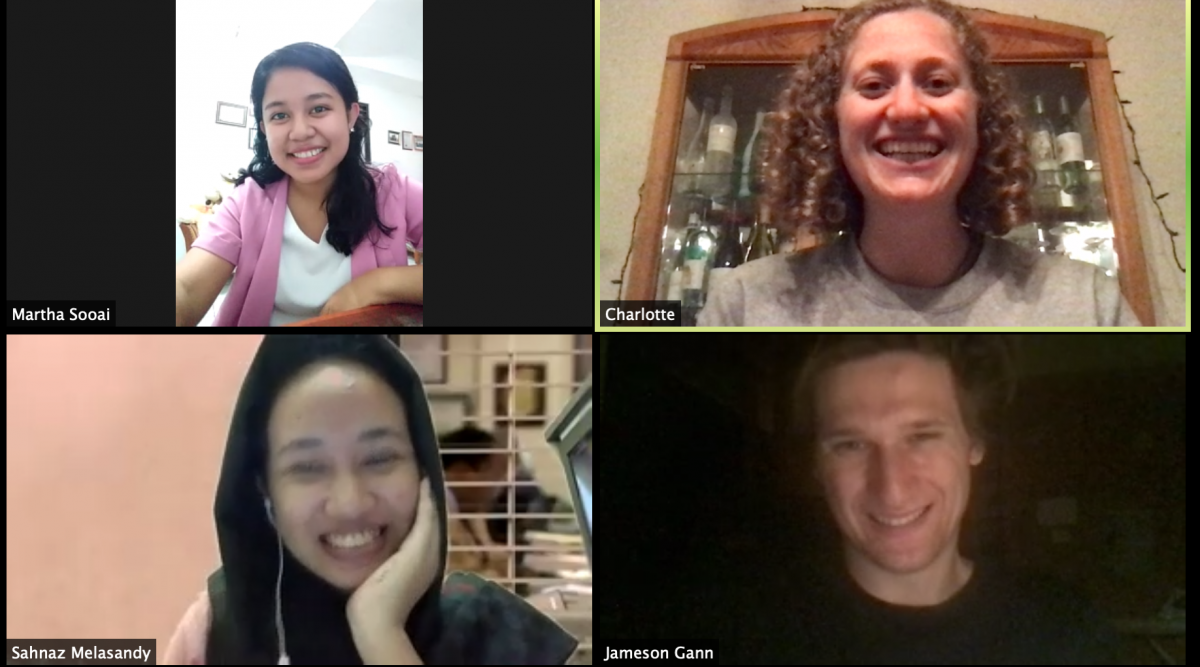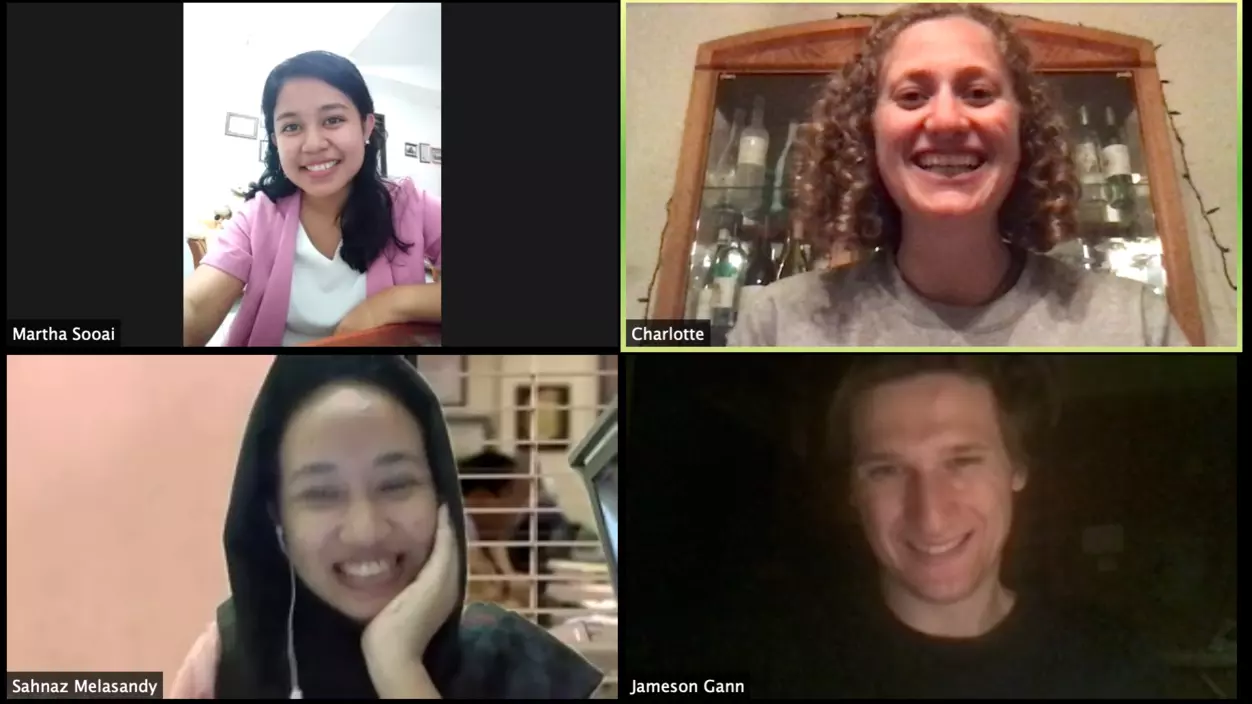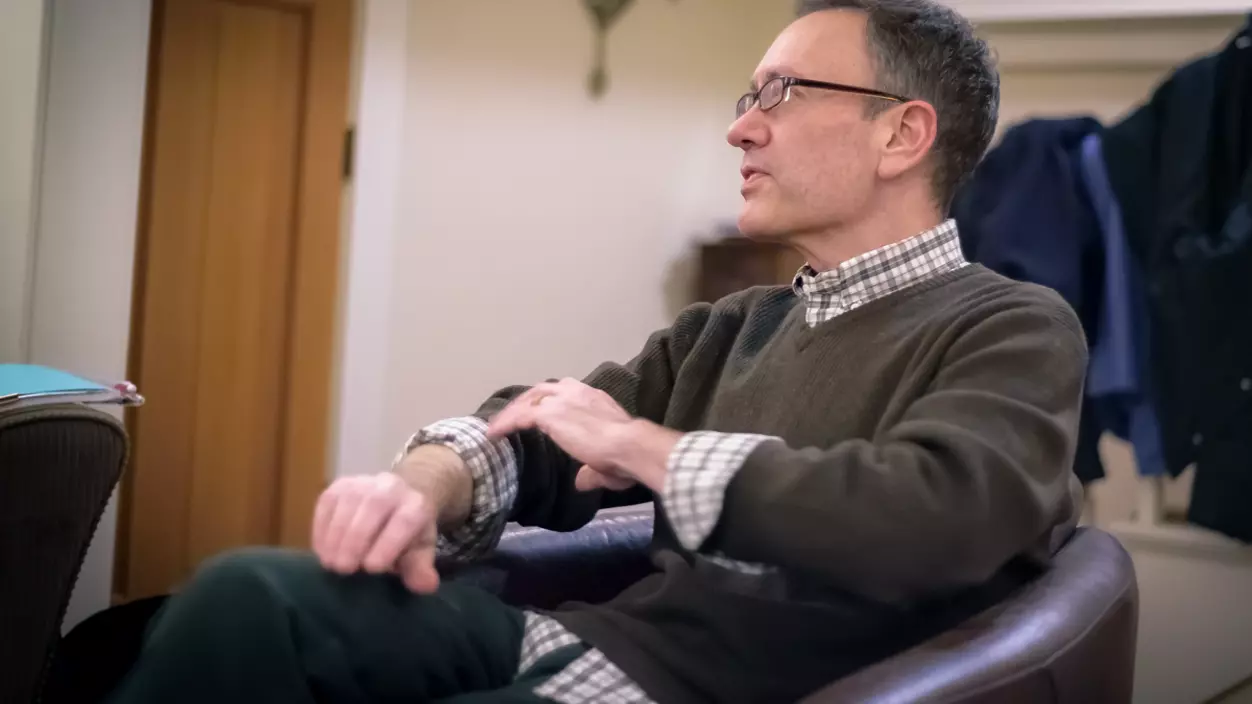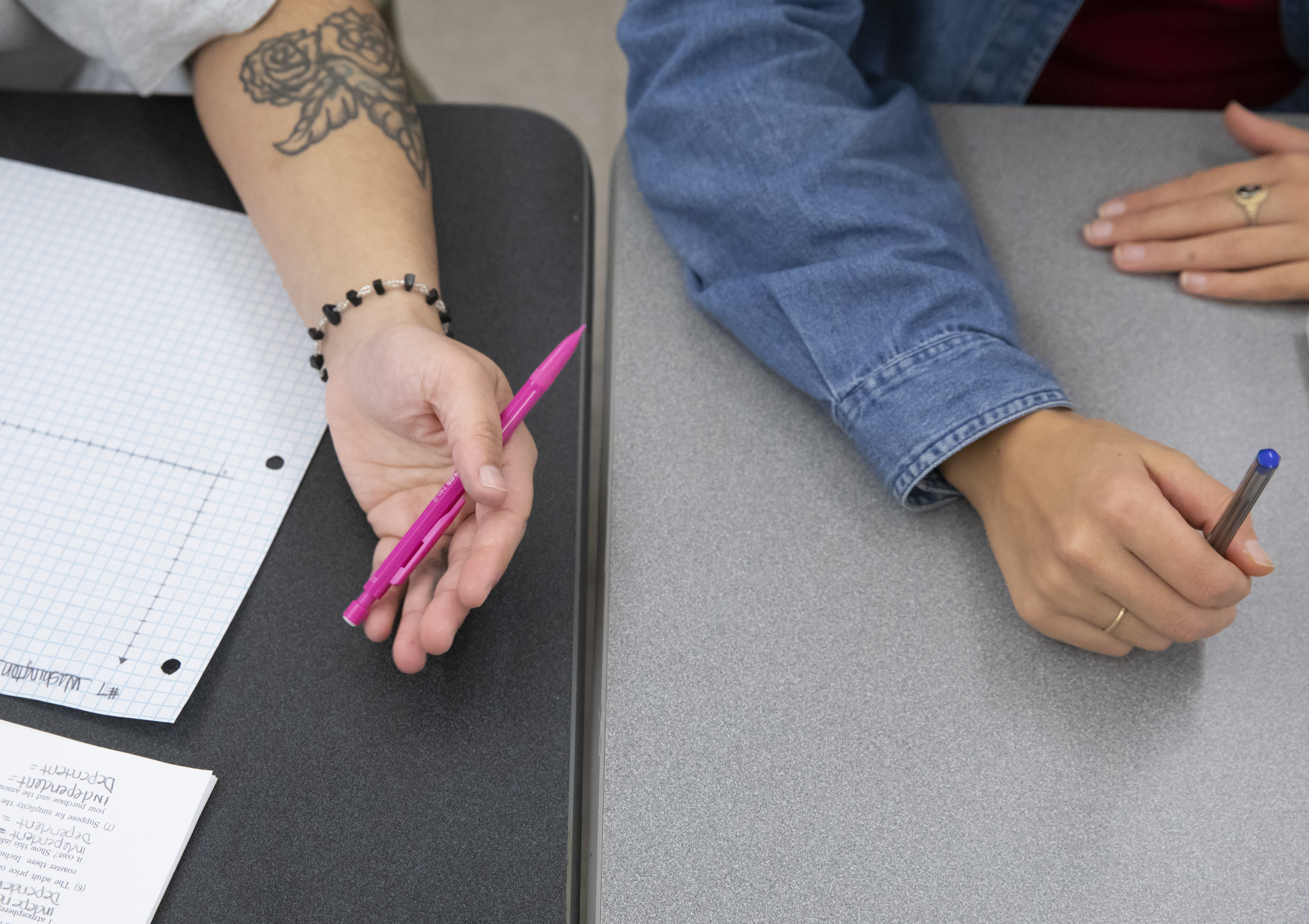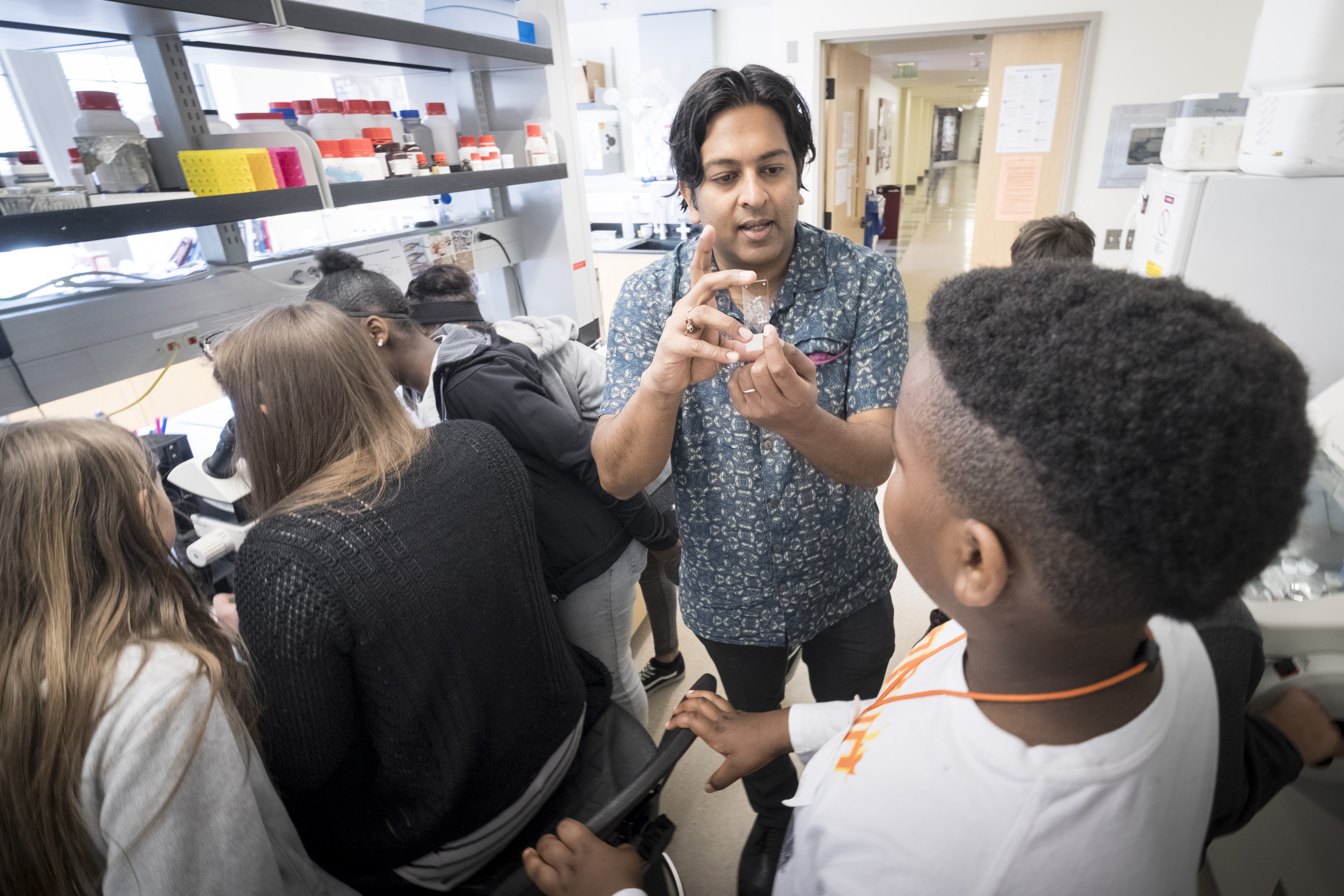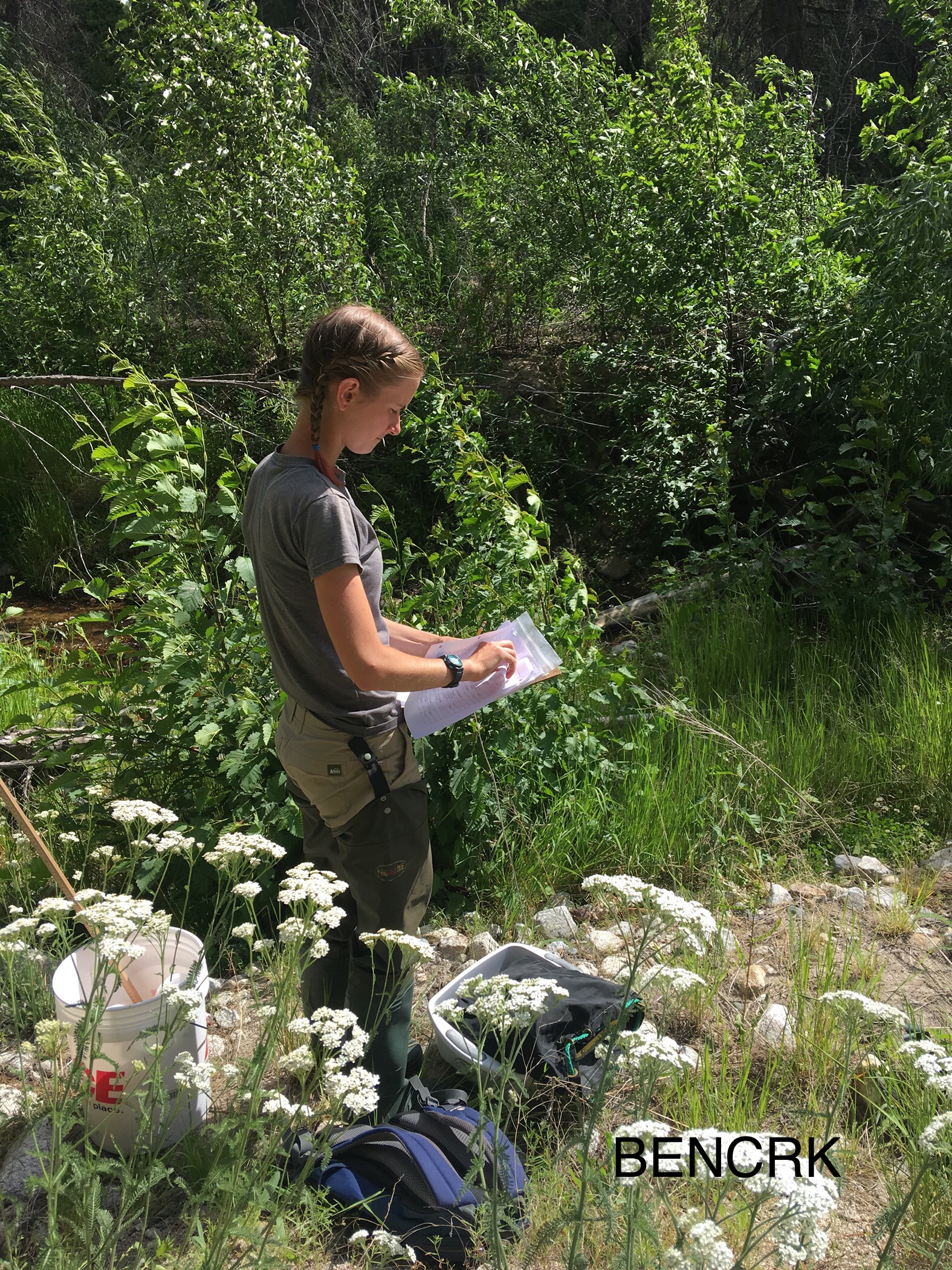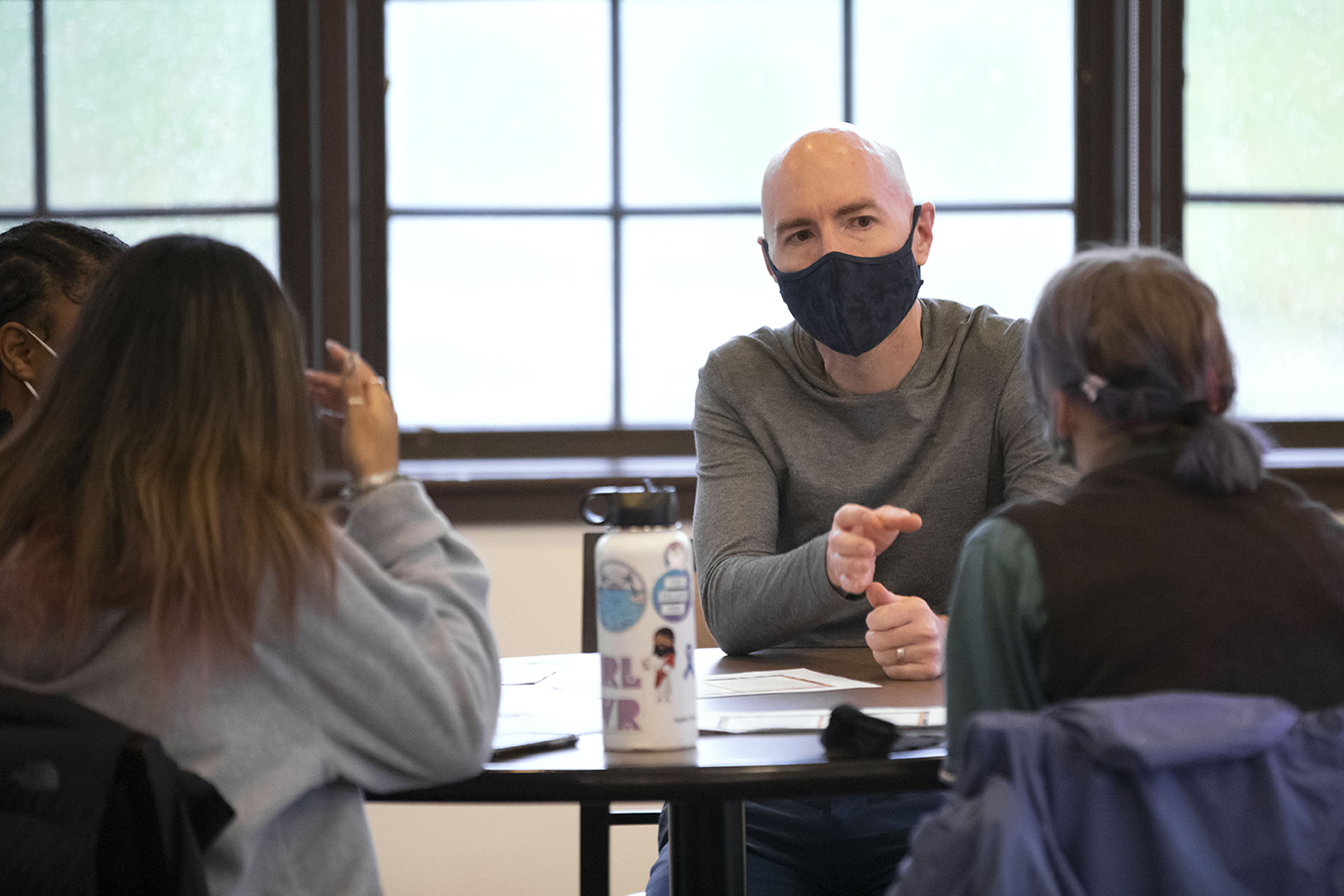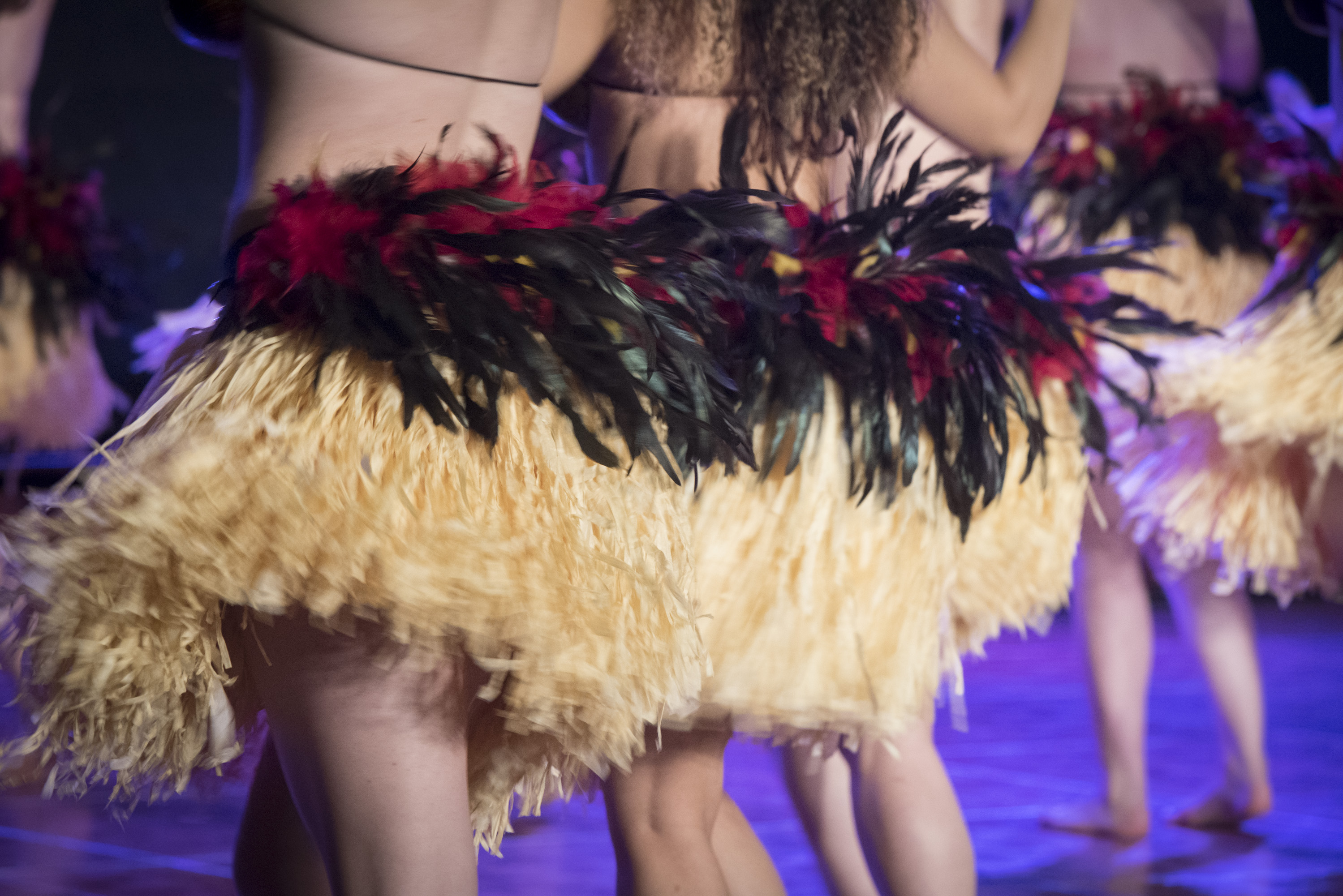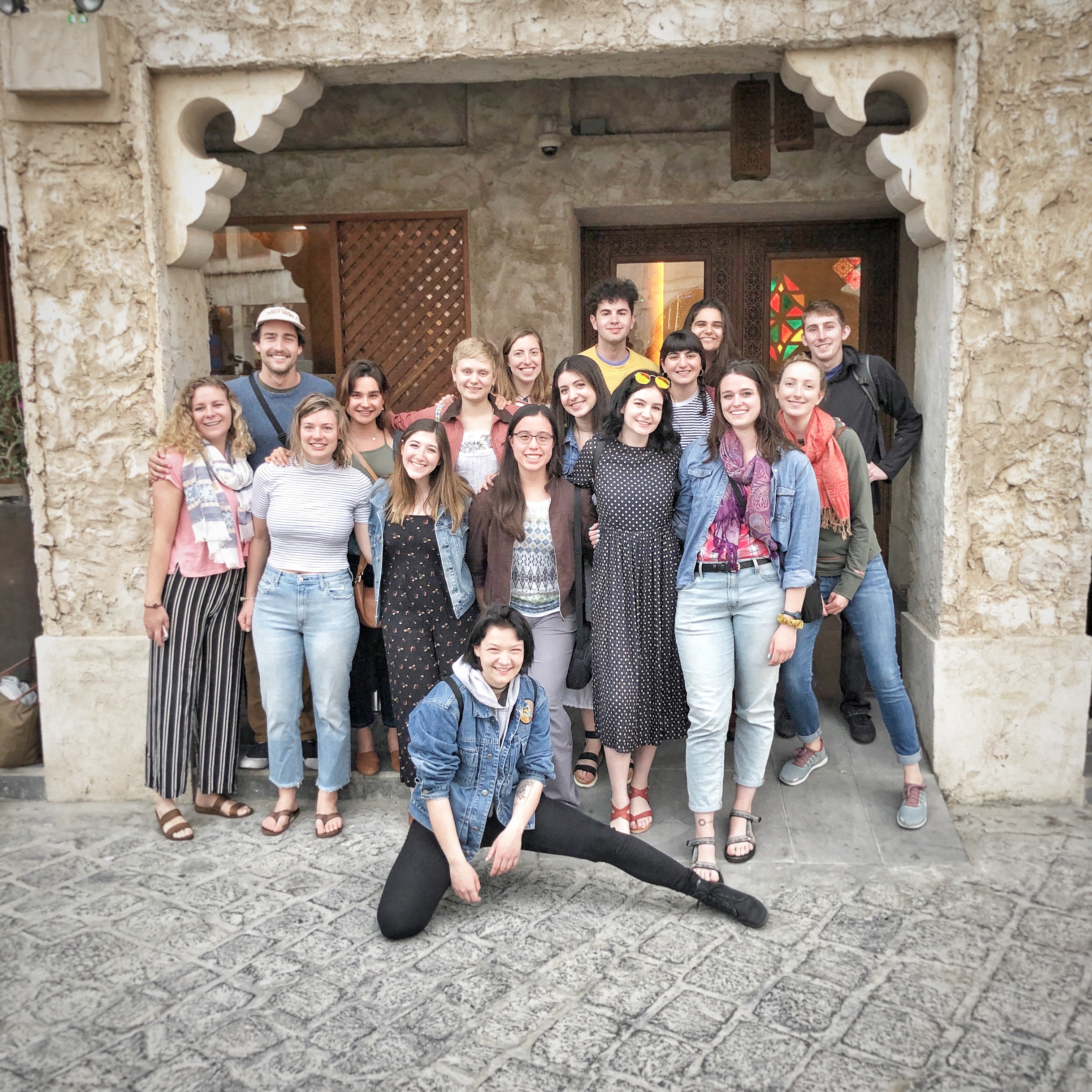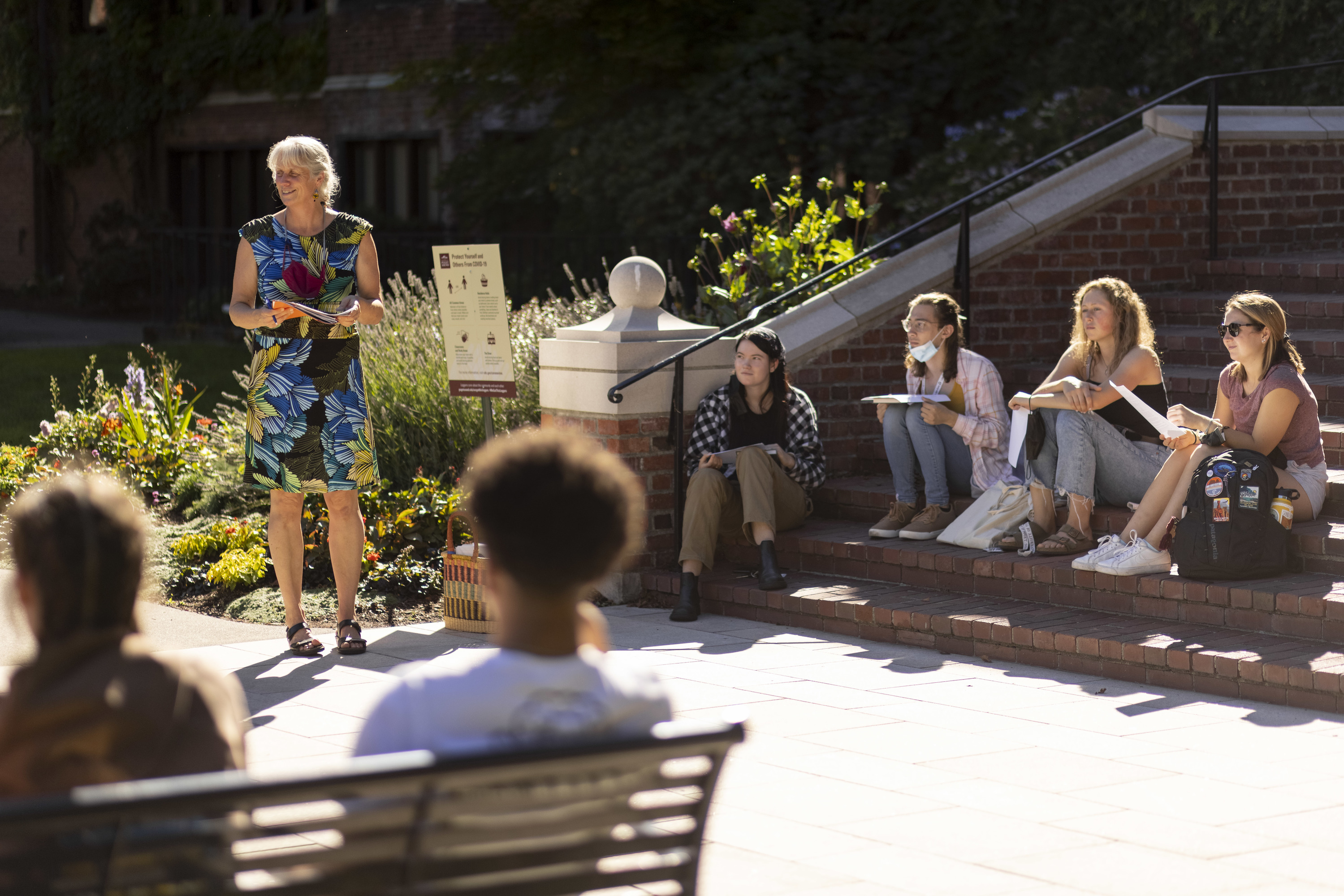When the coronavirus canceled his Indonesia study abroad program, Prof. Gareth Barkin created a virtual cultural exchange
Picture this: Inside a bustling mega mall in Yogyakarta, Indonesia, 10 Puget Sound students are trying to get their bearings. Anthropology professor Gareth Barkin has just tasked them with talking to the shoppers—many of whom are locals and don’t speak English—about hijabs, specifically how the religious headscarf has become high-fashion among young, Indonesian Muslims. It’s an unfamiliar topic for the students, who are already outside their comfort zones in a foreign country.
It's a real scene from Barkin’s Southeast Asia field school course, but a similar one won’t be happening this year. Due to concerns about the coronavirus pandemic, Puget Sound canceled all summer study abroad programs in March. But, unwilling to scrap the course entirely—and the work of developing its curriculum and selecting and building relationships with the Indonesian students who would take the course alongside Puget Sound students—he reinvented it as a virtual cultural exchange.
